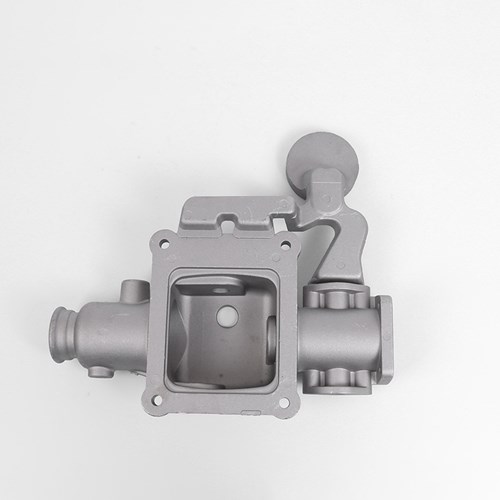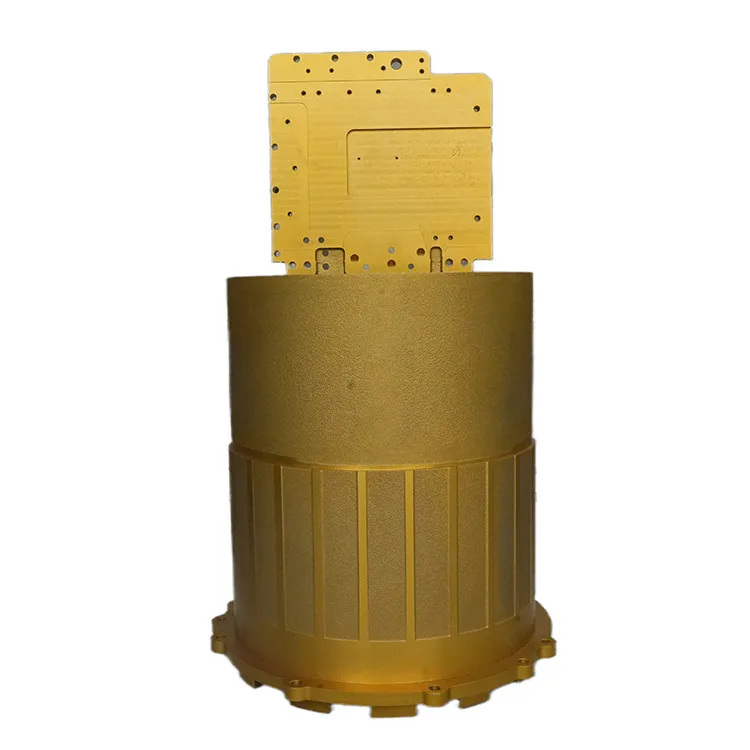Sustainability Factors of Aluminum Foundry and Why It Matters
Wiki Article
Discover the Benefits of Aluminum Casting in Modern Production
Aluminum casting has become a crucial process in modern manufacturing. Its light-weight yet robust nature presents significant advantages for numerous industries. The capability to achieve complex styles and keep tight resistances includes in its charm. aluminum casting. In addition, the cost-effectiveness and environmental advantages make it a lasting choice. As manufacturers look for cutting-edge options, the duty of aluminum casting remains to develop. What particular applications and advantages await expedition in this dynamic field?Strong yet lightweight: The Advantages of Aluminum
Although many materials are made use of in production, aluminum stands apart due to its amazing combination of light-weight residential or commercial properties and remarkable strength. This unique feature makes aluminum a perfect option for numerous applications, especially in industries such as automobile, aerospace, and building. Its low thickness allows for easier handling and transport, adding to minimized energy usage during production and assembly procedures.Aluminum's strength-to-weight proportion is excellent, allowing producers to develop sturdy components without including unneeded mass. This particular is particularly valuable in fields where weight reduction can result in improved gas efficiency and total performance. Additionally, aluminum's resistance to deterioration improves the durability of products, additionally solidifying its charm in modern production.
Ultimately, the light-weight yet strong nature of aluminum settings it as a preferred product, cultivating development and efficiency throughout multiple industries. Suppliers progressively recognize that these benefits can lead to significant advancements in design and performance.
Precision and Complexity in Layout
As manufacturers welcome the abilities of aluminum casting, they uncover brand-new methods for precision and intricacy in layout. This manufacturing process enables for the development of intricate forms and in-depth features that standard approaches usually battle to attain. The fluidness of liquified aluminum allows it to load complex molds, causing elements with tight tolerances and great surface area coatings.This precision is particularly beneficial in sectors such as aerospace and vehicle, where precise requirements are crucial for performance and security. Aluminum casting also fits ingenious styles that improve performance without compromising structural integrity.

Cost-Effectiveness and Efficiency
Cost-effectiveness and efficiency are critical considerations for manufacturers exploring aluminum casting as a production approach. Aluminum casting offers significant price benefits due to its lower product costs compared to various other metals (Aluminum Foundry). The light-weight nature of aluminum reduces shipping and handling expenditures, and its excellent thermal conductivity enables quicker cooling times throughout the casting process, enhancing general production speedMoreover, aluminum's convenience allows makers to create complex shapes and styles, decreasing the demand for additional machining or setting up. This streamlining of manufacturing not only minimizes labor prices yet likewise reduces lead times, allowing firms to respond promptly to market needs.
The longevity and rust resistance of aluminum spreadings add to longer product life expectancies, reducing replacement costs over time. Consequently, manufacturers can attain a balance of high-grade result and reduced operational expenditures, making aluminum casting a significantly eye-catching option in modern-day production.
Ecological Sustainability of Aluminum Casting
Aluminum casting stands out as an eco lasting production alternative, specifically due to its recyclability and lowered environmental impact. The process enables the efficient usage of aluminum, a product that can be reused forever without shedding its residential or commercial properties. This characteristic substantially reduces the demand for virgin aluminum, therefore reducing and preserving natural sources energy intake linked with removal and processing.
Applications Across Industries: From Automotive to Aerospace
While varied markets proceed to seek cutting-edge products for production, aluminum casting has shown to be a functional solution throughout fields such as automotive and aerospace. In the auto market, aluminum castings add to lightweight vehicle styles, improving fuel efficiency and performance. Elements like engine blocks, transmission housings, and wheels profit from aluminum's strength-to-weight proportion.Similarly, in aerospace, aluminum casting plays a substantial function in creating intricate components that need high toughness and reduced weight. Aircraft elements such as brackets, landing gear, and architectural frameworks utilize aluminum for peak performance and safety.
The adaptability of aluminum casting permits it to provide to various other industries, including consumer electronic devices, aquatic, and commercial machinery. This convenience not just meets the specific needs of different applications yet likewise supports ongoing advancement in manufacturing processes. As an outcome, aluminum casting continues to be a crucial player in modern-day manufacturing across various fields.
Often Asked Inquiries
How Does Aluminum Casting Compare to Other Steel Casting Procedures?
Aluminum casting deals premium strength-to-weight ratios, faster air conditioning prices, and superb rust resistance compared to other steel casting processes. These advantages make it ideal for different applications, improving effectiveness and performance in production.What Are the Typical Lead Times for Aluminum Casting Projects?
Regular lead times for aluminum casting projects discover this info here range from 2 to eight weeks, depending upon factors such as complexity, order size, and production capacity. Efficient preparation can assist minimize delays and boost task timelines.Can Aluminum Casting Be Utilized for Intricate Styles?
Aluminum casting can certainly accommodate elaborate layouts. Aluminum Foundry. Its fluidity enables for comprehensive patterns and shapes, making it suitable for intricate parts in numerous sectors. This flexibility try these out boosts style flexibility while keeping architectural honesty and performanceWhat Post-Processing Options Are Offered After Aluminum Casting?
Post-processing choices for aluminum casting consist of machining, polishing, surface area therapies, anodizing, and welding. These strategies enhance the surface, boost dimensional precision, and increase deterioration resistance, thus enhancing the end product's performance and aesthetic appeal.Just How Do Temperature Level Adjustments Influence Aluminum Casting High Quality?
Temperature level modifications significantly influence aluminum casting quality by impacting fluidness, solidification prices, and prospective defects. Rapid cooling can lead to raised brittleness, while excessive heat might cause bending or incomplete filling of mold and mildews during casting.Aluminum casting has actually arised as a critical process in modern manufacturing. As suppliers accept the capacities of aluminum casting, they find new methods for precision and complexity in layout. Aluminum casting procedures commonly create fewer greenhouse gas discharges contrasted to other metal casting methods. While diverse industries continue to look for ingenious materials for manufacturing, aluminum casting has verified to be a versatile solution across markets such as auto and aerospace. In the automobile industry, aluminum castings contribute to lightweight automobile designs, improving gas effectiveness and performance.
Report this wiki page